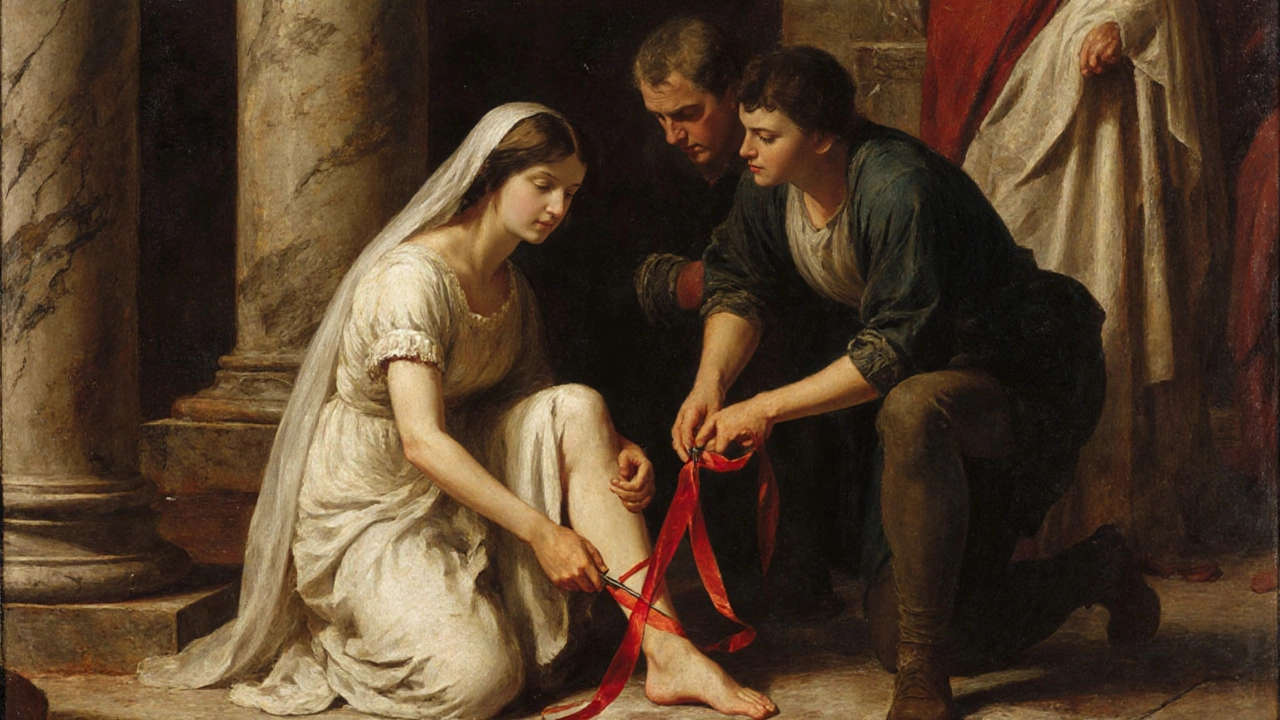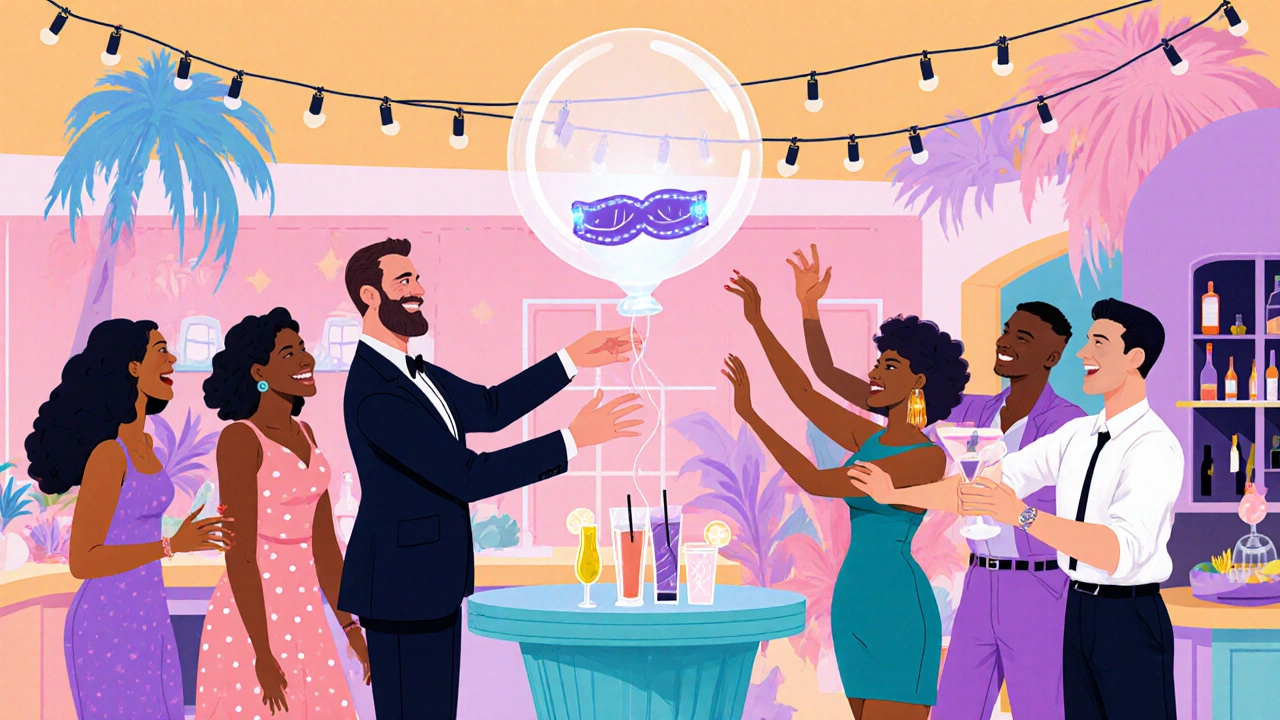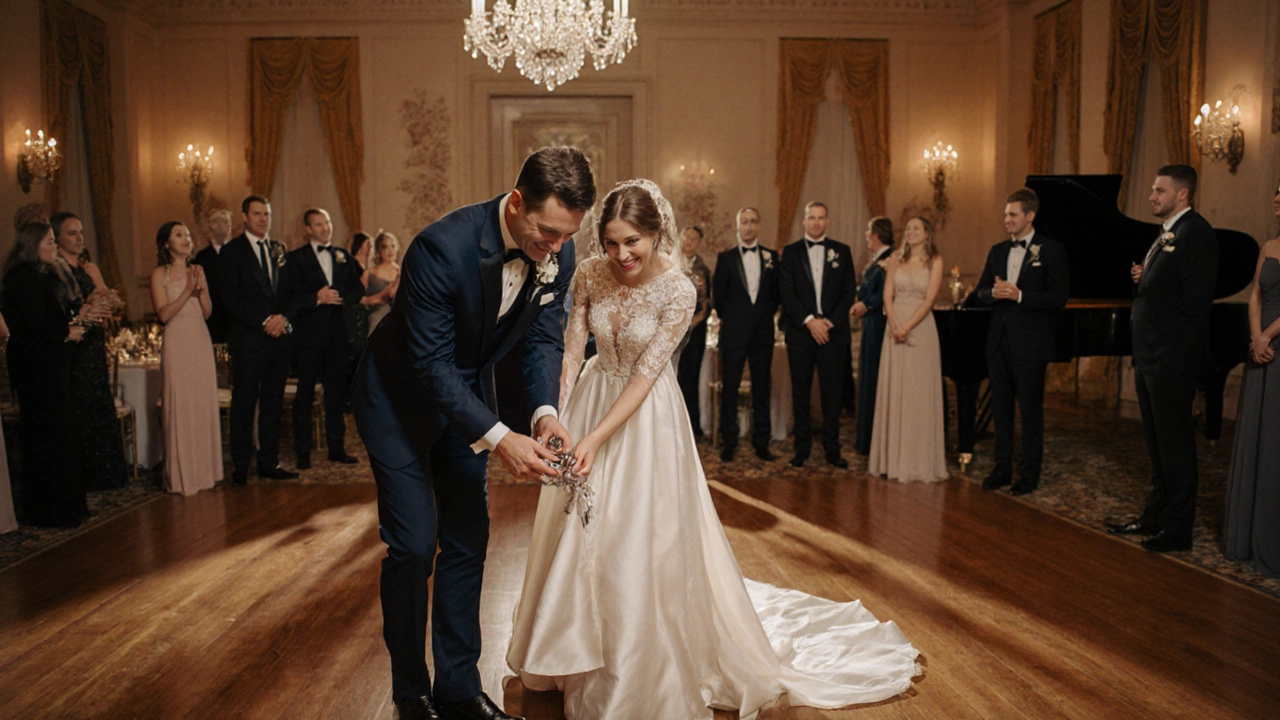Garter Tradition Quiz
Quiz Results
Ever wondered why the husband‑to‑be reaches for the garter during the reception? It’s not a random stunt; it’s a ritual packed with history, symbolism, and a dash of fun. Below we break down the origins, what the act actually means, and how modern couples put their spin on it.
What the Garter Symbolizes
In the 1800s the Garter was a silk or lace band worn by brides to keep their stockings in place. Because stockings were a luxury, the garter became a symbol of wealth and fertility. Removing it and tossing it to a group of single men was a way of sharing that good luck with the next groom.
How the Tradition Started
The custom traces back to ancient Roman wedding rites where a bride’s foot was bound with a ribbon. The ribbon was later cut and given to a male guest, signaling the transfer of marital blessings. Over centuries, European societies merged the ribbon idea with the practical garter, turning it into a playful “catch‑the‑garter” game at the reception.
Why the Groom Takes the Garter
The groom’s role is rooted in the notion of “stealing” the bride’s virtue. By untying the garter, the husband‑to‑be symbolically claims the bride’s fertility. Historically, the groom would keep the garter as a good‑luck charm; today he usually tosses it, letting another single man try his luck at love.

Modern Twists on the Classic Toss
Couples now adapt the ritual to suit their personalities. Some hide the garter in a balloon, others turn it into a scavenger hunt during the cocktail hour. A growing trend is “garter swapping,” where the groom places the garter on the bride’s ankle and they both wear it for a photo, emphasizing partnership over competition.
Step‑by‑Step Guide for a Smooth Garter Removal
- Choose a garter that matches the bridal look-lace, silk, or a personalized monogram works well.
- Plan the timing: the moment after the first dance or during the cake cutting keeps the flow natural.
- Have a sturdy ring or decorative handle ready for the groom to hold.
- Ensure the single men are gathered; a quick announcement from the MC helps.
- When the garter is tossed, let the crowd cheer and then announce the catcher.
- Celebrate the winner with a humorous prize-like a bottle of champagne or a gift card.
Common Misconceptions Debunked
Many think the garter toss is a relic destined to die out. In reality, the ritual adapts. Another myth is that only men can catch the garter. Some modern weddings invite women to join, turning the activity into a mixed‑gender game that reflects gender‑neutral values.

Etiquette Tips for Couples
While the tradition is light‑hearted, a few etiquette points keep it respectful:
- Explain the gag to older relatives in advance to avoid awkward moments.
- Never force anyone to participate; keep the mood optional.
- Make sure the garter is clean and safe to handle-no glitter that could cause allergies.
- Consider cultural sensitivities: some cultures view the garter as a private item and may prefer a simple removal without a toss.
History vs. Today: A Quick Comparison
| Aspect | Historical Practice | Modern Adaptation |
|---|---|---|
| Purpose | Transfer fertility blessings | Fun, photo‑ops, inclusive games |
| Who catches it | Single male guests | Anyone willing, often mixed gender |
| Material | Lace or silk | Custom fabrics, printed designs, even LED‑lit bands |
| Location | After ceremony, during banquet | Integrated into cocktail hour, after first dance, or during cake cutting |
Final Thoughts
Whether you stick to the classic garter toss or reinvent it into a quirky party game, the act of the husband removing the garter remains a beloved way to celebrate love, luck, and togetherness. Remember, the goal is to keep the moment joyful and inclusive-just like any good wedding tradition.
What does the garter symbolize in wedding traditions?
The garter originally represented fertility and wealth. Its removal and toss share those blessings with single guests, giving them a playful chance at good luck.
Why does the groom, not the bride, take off the garter?
Historically the groom “steals” the bride’s purity, signifying his claim over her fertility. Today it’s mostly a fun gesture that keeps the focus on the couple.
Can women catch the garter?
Absolutely. Modern couples often open the toss to all single guests, creating a gender‑neutral celebration.
What should we do if someone is uncomfortable with the garter toss?
Make participation optional. You can still remove the garter for photos without tossing it, or replace the toss with a different activity.
How can we personalize the garter for our wedding?
Add monograms, choose a fabric matching your theme, embed a small charm, or even use a LED‑lit band for a night‑time sparkle.
